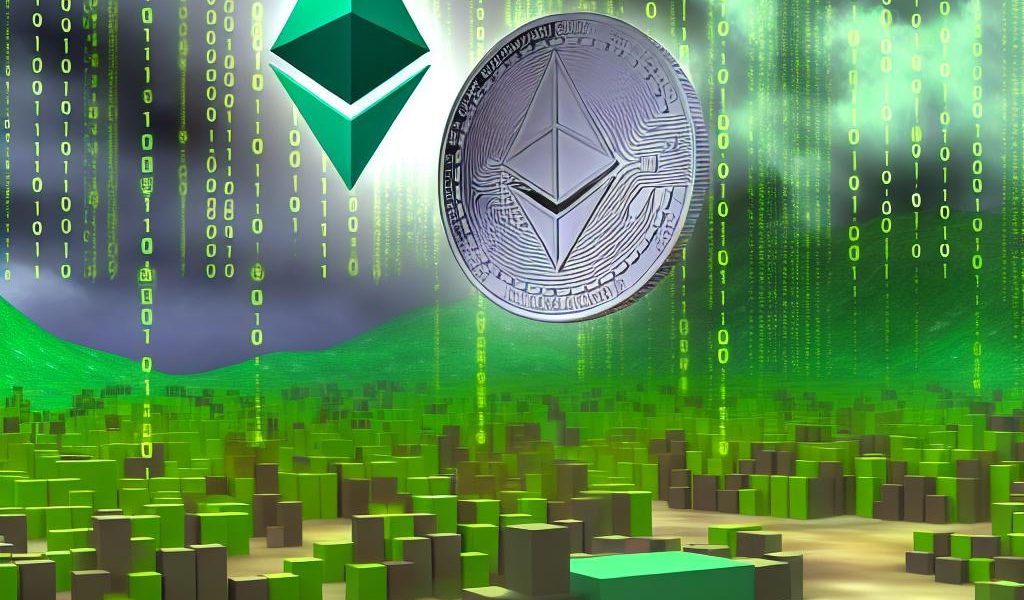
What is ETH?
admin - April 1, 2025Understanding Ethereum (ETH)
Ethereum, frequently abbreviated as ETH, is fundamentally changing how technology interacts with society by providing a decentralized platform that allows developers to build and deploy smart contracts and decentralized applications, commonly known as dApps. Initially proposed by Vitalik Buterin in late 2013, Ethereum’s development was successfully crowdfunded in 2014. This innovative network went live on July 30, 2015. Since its inception, Ethereum has attracted significant attention and investment, making it one of the most discussed topics in the realm of blockchain technology today. For more insights into Ethereum, you might want to visit a relevant source about cryptocurrency like this page.
What is Ethereum?
Ethereum represents a blockchain-based platform designed to facilitate the execution of code known as smart contracts. These applications operate with precision, executing exactly as programmed, eliminating potential risks of downtime, fraud, or outside interference. Essentially, the Ethereum platform establishes a foundation for an Internet characterized by decentralized monetary transactions and data. In this new digital landscape, Ethereum allows users to establish trustless environments which safeguard interactions from manipulation and misuse through its underlying blockchain architecture.
Ethereum vs. Bitcoin
Ethereum is frequently juxtaposed with Bitcoin due to their shared utilization of blockchain technology. However, they differ markedly in functionality and purpose. Bitcoin’s primary role is as a digital currency, often acclaimed for its status as “digital gold”, signifying a robust store of value. Ethereum, contrarily, aspires to be a dynamic platform for decentralized applications. This robust framework not only supports transactional functionalities but also empowers developers to create and manage decentralized projects seamlessly over its network. Bitcoin retains its focus on optimizing and securing digital transactions, while Ethereum expands blockchain use-cases beyond mere financial transactions.
The Role of Ether (ETH)
Ether (ETH) serves as the native cryptocurrency for the Ethereum platform. This digital currency is primarily leveraged as a means of compensating participant nodes that execute operations on the Ethereum network, commonly referred to as “gas”. Gas is essentially a measure of the computational effort required to execute operations, encompassing smart contract deployments and transactions. Users are obligated to pay in ETH to facilitate their transactions and computations across the network. Ether, in this framework, sustains both the functionality of the platform and serves as a financial incentive for participants ensuring the platform’s stability and security.
Smart Contracts and dApps
Smart contracts are self-contained programs that enforce the execution of contracts with their specific terms directly encoded into sound lines of code. They enable trusted transactions and agreements to take place among anonymous and decentralized parties without necessitating a central authority, legal frameworks, or external enforcement mechanisms. This feature has profound implications for traditional contracting and transactional frameworks, providing more autonomy and security. Decentralized applications, or dApps, operate on the Ethereum blockchain, offering diverse decentralized services that range from financial services to complex logistical solutions. These blockchain-based applications aim to revolutionize traditional industries by offering increased transparency, security, and efficiency.
Impact and Future Prospects
Ethereum has spearheaded a wave of blockchain innovation. It has particularly fueled the growth of sectors like decentralized finance (DeFi) and non-fungible tokens (NFTs). These groundbreaking technologies are poised to fundamentally alter industries from finance to digital art and gaming, introducing borderless, transparent, and tamper-proof capabilities. DeFi, for example, seeks to reshape financial systems by creating decentralized alternatives to traditional financial services, thereby democratizing access. NFTs are redefining ownership and provenance of digital assets, creating entirely new economic frameworks in the digital art and collectibles landscape.
Moving forward, Ethereum is expected to continue influencing technological advancements significantly. As Ethereum progresses with upgrades such as Ethereum 2.0, aimed at boosting scalability and efficiency, the potential impact of Ethereum within the digital realm is expected to expand. This update focuses on adopting a proof-of-stake consensus mechanism, promising to enhance transaction processing speed and reduce costs while improving energy efficiency. The anticipated enhancements will likely result in increased adoption and diversified applications across various sectors.
In understanding Ethereum fully, it is imperative to delve into its technical, economic, and philosophical tenets that delineate its architecture and potential within the digital ecosystem. Ethereum, with its robust framework and continued enhancements, is poised to play a pivotal role in the evolutionary trajectory of decentralized technologies and digital economies. As we navigate the future, Ethereum’s platform will likely remain a cornerstone for innovation, fostering new paradigms where digital transactions and applications can evolve beyond present limitations. The ongoing journey of Ethereum underscores the collaborative efforts of visionary developers, contributors, and users who are collectively crafting the future of our digital landscape, one that is deeply rooted in decentralization and autonomy.
This article was last updated on: April 1, 2025
